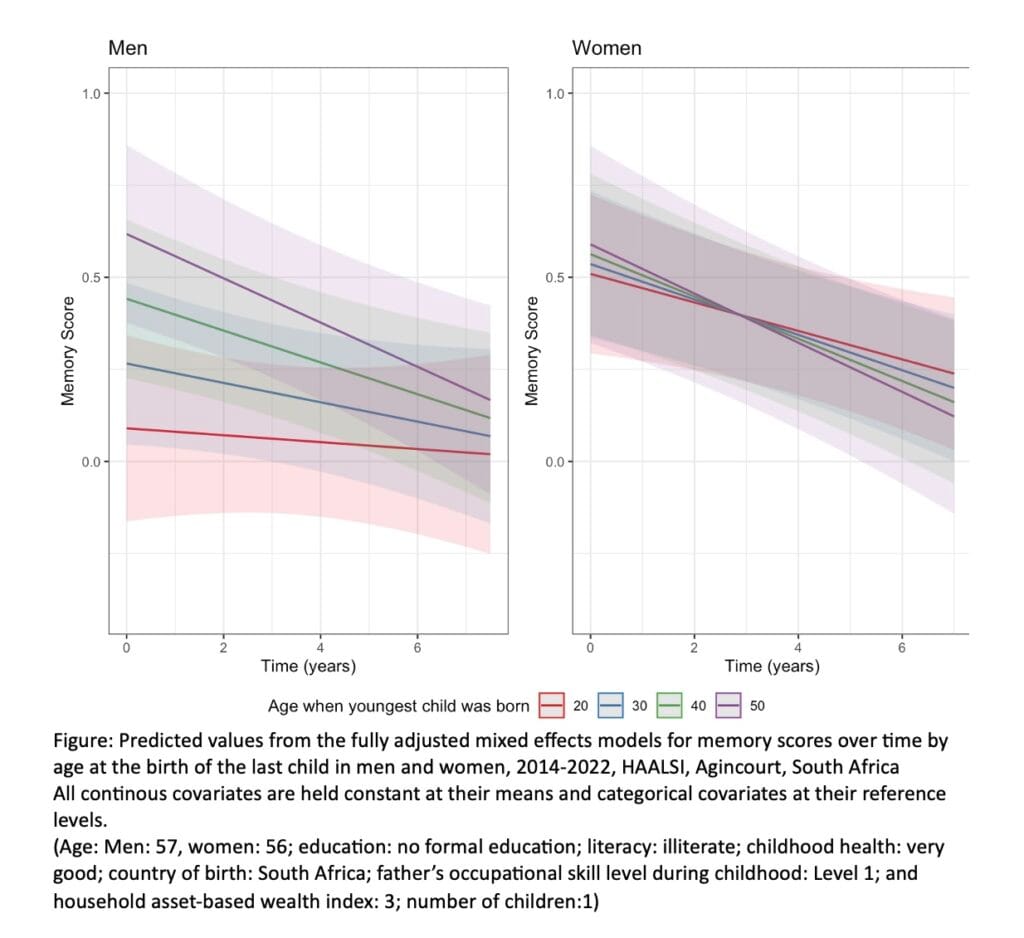Aging
Parental age at the birth of the last child and mid- to later-life memory decline in rural South Africa Meredith L. Phillips* Meredith Phillips Joshua W. Brown Jaroslaw Harezlak Christina Ludema Molly Rosenberg
Background: The prevalence and incidence of cognitive impairment and decline are growing, especially in low- and middle-income countries. Having children later in life has been associated with better health outcomes and may be associated with improved cognitive health. We aimed to estimate the association between age at the last birth and memory function and decline in older adults in Rural South Africa.
Methods: Using data from the “Health and Aging in Africa: A Longitudinal Study of an INDEPTH Community in South Africa” (HAALSI) cohort, we calculated participants’ ages at the birth of their last child, restricting to parents who had not experienced child loss (n=1,961). Longitudinal episodic memory was assessed at three points from 2014/15-2021/22. We fit sex-stratified linear mixed-effects models to estimate the association between age at last birth on memory function and decline, adjusting for age, education, literacy, childhood health, country of birth, father’s occupation, and household assets.
Results: Of the 1,961 participants, 47% were men (922). The mean age was 57 years for men and 55 for women. 67% of men and 73% of women reported very good childhood health, 79% of men and 75% of women were born in South Africa, 74% of men and 69% of women had at least some formal education, and 80% of men and 70% of women were literate. On average, men were older at the birth of their last then women (39 vs 34). For men, with each additional year of age at birth of last child, memory scores were 0.018 SD units higher (95% CI: 0.009 – 0.026), but the slope of memory decline was steeper (b: -0.002, 95% CI: -0.0030 to -0.0003). For women, age at birth of last child was not associated with memory function or memory decline.
Conclusion: Older age at the last birth was associated with greater memory function but faster decline in men but not women. In this sample, the relationship between reproductive life history and cognition may be shaped by gendered experiences and biological factors. However, the generalizability of these findings may be limited. These results suggest that, highlighting the importance of considering these differences in future work investigating the relationship between reproductive life history and cognition.

